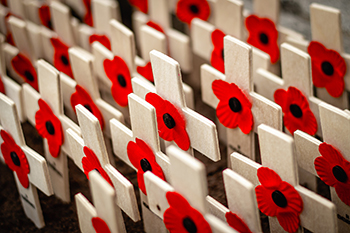
The Australian calendar is dotted with public holidays. I happen to live in the nation’s capital, and it was noted to me on “Canberra Day” that Canberrans have more public holidays than any other state or territory in Australia. Hmmm. I wasn’t sure if that was true, so all I could respond with is: “Aren’t we lucky!”
On the news that night, a TV interviewer posed the question to several Canberrans if they knew what Canberra Day celebrated. Embarrassingly, quite a few didn’t have a clue, but regardless of this, the majority were grateful for the beautiful city in which they live.
This caused me to reflect on our gazetted public holidays. Of course, not everyone gets to have a day off on a public holiday. But, for those of us lucky enough to, how do we celebrate a public holiday if we don’t believe in, agree with, or understand the reason for the holiday?
For example, when I was growing up, January 26 was regarded as a day to celebrate Australia and everything Australian: Meat pies, kangaroos and Holden cars! Australia Day now seems to provoke different emotions and a more thoughtful attitude towards our country’s history, especially when it comes to the First Peoples of Australia. Many people are now reflecting deeply on the appropriateness of the date for this holiday.
The Anzac Day holiday still holds a sacred significance for many Australians. Until COVID-19 restrictions hit last year, Anzac Day marches and memorial celebrations seemed to have grown in popularity. This holiday still causes us to reflect on the destructiveness of war and our desire for peace.
Public holidays for sporting events, such as the Melbourne Cup and the AFL Grand Final, are also treasured by many. Here people acknowledge the beauty of sport in their lives.
But what about those holidays that relate to the Christian tradition: Good Friday, Easter Sunday, Easter Monday and Christmas Day? These are all public holidays in Australia.
How many of us search for the deeper Christian meaning of these days? That is, do we go beyond hot cross buns, Easter eggs and gift-giving? Is it simply a time to get away for a short holiday?
As we approach three of these public holidays, we might reflect on the etymology of the word “holiday”. It does in fact originate from the words “holy day”.
So, how might we keep these coming days “holy”?
Food for the journey

When I was 16, I was fortunate to travel to Europe with my Dutch grandparents. My Oma and I had scheduled a trip to Paris on the first two days of November. Much to my annoyance, everything was closed on both of those days!
Why? Well, if you are new to the Catholic faith, those two dates are the feast days of All Saints (November 1) and All Souls (November 2). In many Catholic countries, these days were designated public holidays.
This is not so much the case now. However, it does point to the significance that our society once placed on the memorials of these holy days. They provided an opportunity for people to mark the feast by attending Mass and possibly having a celebratory meal together without the stress of having to go to work.
On Thursday, April 1, Catholics as well as Christians from other traditions around the world will begin the celebration of what is known as the Paschal or Easter Triduum. These days are rich with meaning. They take us on a journey from Jesus’ last meal with his disciples, his suffering, death and finally his resurrection.
For those readers of Faith Journey who are Catholic, how are you planning to ensure these holidays are holy days?
For those readers of Faith Journey who are contemplating becoming a Catholic, the Easter Vigil (the Saturday evening before Easter Sunday) is the time when many people around the world are welcomed into the Church. I would encourage you, if COVID-19 restrictions permit, to see if there are any adults being baptised in a Catholic Church near you. These baptisms represent a significant step in their ongoing desire to learn more about God, Jesus and the faith, as well as being formally welcomed as a member of the Catholic community.
If you want to know more about the journey to becoming a Catholic, please contact us at This email address is being protected from spambots. You need JavaScript enabled to view it. or on 1300 432 484.
Going Deeper
If the above article has encouraged you to enter more deeply into the Good Friday/Easter Sunday “holy days”, then here are a few ideas.
The “Stations of the Cross” focus on the day of Jesus’ crucifixion. They are often publicly expressed via a dramatisation of the event, or by reflecting on images of the events that took place during the day of Jesus’ death. If you go into a Catholic Church, you will often see a set of these images on the walls.
Here are three online offerings for the Stations of the Cross. They are all meditative and reflective, yet different in style.
Bishop Robert Barron reflects on the Stations of the Cross
Virtual Stations of the Cross by Busted Halo
The Way of the Cross—a guided multimedia reflection from the Archdiocese of Melbourne
Words: Sharon Brewer
Images: Lightstock
Unsplash, Chris Sansbury, Anzac Day crosses
This article is part of Faith Journey, a newsletter from the National Centre for Evangelisation.



